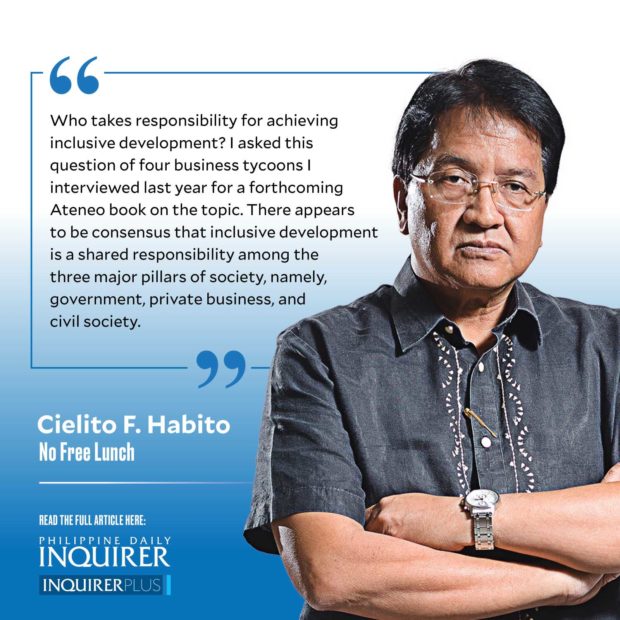Tycoons’ thoughts
 Can big business conglomerates become forces for promoting inclusive economic development? The casual observer might find this hard to expect. After all, the history of business empires in rich countries pointed to a seemingly natural tendency for growing concentration of economic power—i.e., more exclusion rather than inclusion.
Can big business conglomerates become forces for promoting inclusive economic development? The casual observer might find this hard to expect. After all, the history of business empires in rich countries pointed to a seemingly natural tendency for growing concentration of economic power—i.e., more exclusion rather than inclusion.
At its peak, the Rockefeller business empire controlled 90 percent of the American oil industry, after growing from much smaller beginnings. In a 2001 book about John D. Rockefeller, Grant Segall described the tycoon’s approach to growing his petroleum business as a “self-reinforcing cycle of buying the least efficient competing refiners, improving the efficiency of his operations, pressing for discounts on oil shipments, undercutting his competition, making secret deals, raising investment pools, and buying rivals out.” Similar stories could be found in the origins and growth of the zaibatsus of Japan and chaebols of Korea.
This tendency for increased concentration and exclusion in a free market economy draws from the principle of economies of scale, which bestows a cost advantage on larger firms, allowing them to undercut and drive smaller competitors out of business. Many end up selling out to the dominant firm as it “eats up” the competition, Pac-Man style. The counterforce to this natural trend in order to achieve a more inclusive economy can only come from either the state (via regulation) or big business itself (via voluntary and responsible action).
Who takes responsibility for achieving inclusive development? I asked this question of four business tycoons I interviewed last year for a forthcoming Ateneo book on the topic. There appears to be consensus that inclusive development is a shared responsibility among the three major pillars of society, namely, government, private business, and civil society. Jaime Augusto Zobel de Ayala noted: “Given the broad scope of inclusive development, the challenges that it seeks to address are certainly more complex and cannot be resolved by a single or even a couple of sectors. It takes a broad coalition, with each member playing its respective part, in ensuring that these complex challenges are effectively addressed.” Hence, he believes that “government, civil society, and private enterprises must all contribute their unique, complementary strengths; and contribute their fair share.”
Josephine Gotianun-Yap agrees, noting that inclusive development is multidimensional, with each sector having an important role to play. Sabin Aboitiz stresses the urgent need for a truly cooperative “whole of society approach” in the pursuit of inclusive development, where “it is imperative that each sector of society work not just together, but also with equal contributions of effort and commitment, towards a common goal for the common good, which is closing the gap for the marginalized.”
Still, Lance Gokongwei observes that in the end, much rests on the government. “If you look at how things have played out elsewhere, you have civil society and business trying to influence government, which ultimately decides and acts as final arbiter.” He notes how American President Theodore Roosevelt, under his Square Deal platform, effectively ended the “Gilded Age” of powerful trusts and monopolies that had widened the gap between rich and poor in 19th-century America. But while the government makes the rules, observes Aboitiz, they must view the business sector as an essential partner. “They must provide and sustain an environment that enables, encourages, and promotes investments,” he asserts, “particularly to spur rural development in areas farthest away from the ‘corridors of power.’” But as the government plays its role, Gokongwei stresses the need for proper balance, and cautions against “too much regulation to the point of stifling entrepreneurship, or too little to the point of fostering massive inequality.”
In this day and age when even big businesses have taken the United Nations’ Sustainable Development Goals to heart, we look to business leaders to take responsible actions to make their conglomerates forces for inclusion, rather than exclusion.
cielito.habito@gmail.com
















